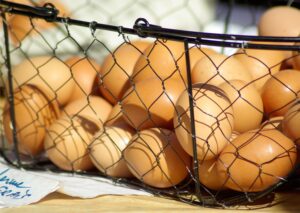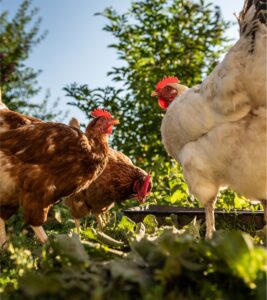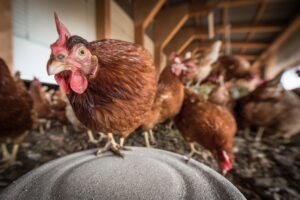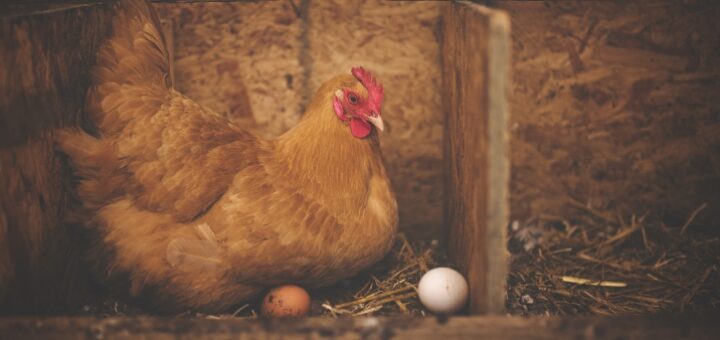No different to humans, chickens require the correct amount of nutrients for optimal health.
Depending on the breed a hen can lay around 200-300 eggs a year, that’s about 1 egg every 24-26 hours. Each eggshell contains approximately 95% calcium carbonate. That means a chicken needs to eat 20 times more calcium in their bodies to produce hard eggshells.
 To make the eggshell hard a hen will mostly use the dietary calcium that is available to them. If free choice access to calcium is not available or the amount is insufficient as the shell is forming, a hen will than need to draw upon their own bone reserves to create a hard shell and as a result may become egg-bound or lay eggs with soft shells and may eventually cause brittle bones that fracture easily.
To make the eggshell hard a hen will mostly use the dietary calcium that is available to them. If free choice access to calcium is not available or the amount is insufficient as the shell is forming, a hen will than need to draw upon their own bone reserves to create a hard shell and as a result may become egg-bound or lay eggs with soft shells and may eventually cause brittle bones that fracture easily.
So how can we prevent calcium deficiency in chickens?
A laying hen must receive 4-5 grams of calcium per day. This can be achieved by supplying calcium rich supplements:
Crushed Oyster Shell: made of ground up, oyster shell. It is an excellent source of slow-release source of calcium because it is large and sits in the gizzard, getting ground up a little at a time before absorbed by the hen.
Shell Grit: made of small to fine ground up, gritty seashells. It both looks and feels like very coarse sand and is another excellent source of slow-release calcium and assists in food digestion.
Calcium + D3 Supplement: There are many calcium supplement options on the shelves these days, some also contain D3 that assists with absorption. They are a great option that you can add to their drinking water over a short period or intermitted (1-2 days a week) if you have discovered a deficiency amongst your flock.
What is “Free Choice” Access?
You may hear chicken people talk about “free choice” access. This simply means that chickens understand what nutrients they need, how much and when they need it better than we do. So rather than mixing the supplements into their regular layer mash or pellets, offer it in a separate feeder or bowl and your chickens will instinctively pick away at what they need.
Bet you didn’t think they were that clever!
 Can you give too much calcium?
Can you give too much calcium?
The simple answer is YES! Excess calcium can lead to extra uric acid in the kidneys, causing blockages. Additionally, too much calcium causes soft bones, more commonly known as rickets.
So, to be sure you give the right amount of calcium check with your veterinarian, avian expert, or local produce supplier.

Author Bio: Nikki is pack leader at Pressplay Pets, a blog for the modern age pet parent interested in health & care, news, reviews & personal accounts of unconditional love & at times heartfelt pain of pet parenting. She is also proud mum to cute and cheeky Papillons ‘Amber’ and ‘Indy’!
Follow Pressplay Pets blog:
Follow Instagram, Facebook and Twitter
Pressplay Pets a blog for the modern age pet parent interested in health & care, news, reviews & personal accounts of unconditional love & at times heartfelt pain of pet parenting!
Follow Us!



